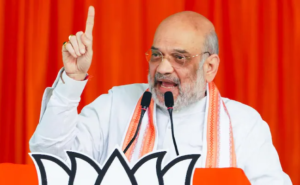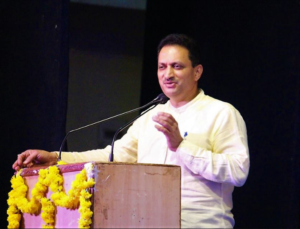Vijay Shekhar Sharma’s Resignation: Navigating Regulatory Challenges at Paytm Payments Bank

Mr Sharma owns a 51 per cent stake in Paytm Payments Bank.
Vijay Shekhar Sharma, CEO of Paytm, announced his resignation as non-executive chairman and board member of Paytm Payments Bank on Monday, citing ongoing regulatory challenges faced by the digital payments giant. The decision comes in the wake of stringent measures imposed by the Reserve Bank of India (RBI), including an order for Paytm Payments Bank to wind down operations by March 15 due to persistent compliance issues and supervisory concerns.
The RBI’s actions were driven by several concerns, including inadequate customer identity checks and perceived proximity to the parent company, Paytm. In response, Paytm has undergone a significant board overhaul, with the appointment of independent directors, including former chairman of Central Bank of India Srinivasan Sridhar, former Bank of Baroda Executive Director Ashok Kumar Garg, and two retired Indian Administrative Service (IAS) officers.
The restructuring of the board is viewed as a strategic move by Paytm to demonstrate compliance with regulatory norms and regain regulatory confidence. While not explicitly mandated by the RBI, the reconstruction is seen as an effort to assure the regulatory body of Paytm’s commitment to regulatory adherence.
Reasons Behind Vijay Shekhar Sharma’s Resignation
With a 51% stake in Paytm Payments Bank, Vijay Shekhar Sharma, along with One 97 Communications, the parent company, owns the rest. Sharma’s resignation and the appointment of independent directors are seen as deliberate steps to facilitate a smooth transition and strengthen governance structures. The move aims to separate Paytm from its payments bank unit and position it as an independent entity.
The regulatory challenges have taken a toll on Paytm’s stock value, witnessing a significant decline post the RBI’s order. However, recent signs of recovery are attributed to Paytm’s partnerships with new banking entities and the RBI extending the deadline for winding down the payment bank’s operations.
Finance Minister Nirmala Sitharaman convened a meeting with fintech industry representatives on Monday to address concerns and issues. However, specific discussions regarding Paytm Payments Bank were reportedly not part of the agenda. The finance ministry plans to engage in discussions with Indian law enforcement agencies and fintech firms soon to facilitate communication between the two entities, as indicated in a ministry statement.
In response to concerns raised by some listed fintech companies regarding their ownership structures, both the central bank and the government plan to examine these issues. The initiative reflects a broader effort to enhance transparency and accountability in the fintech sector. Additionally, the government has pledged to simplify ‘know your customer’ (KYC) norms across the fintech space, potentially addressing operational challenges faced by fintech firms.





